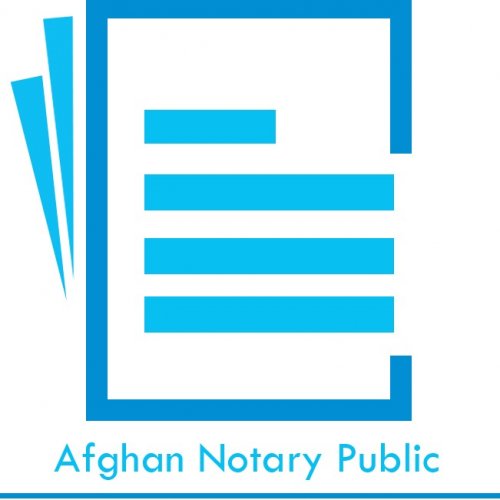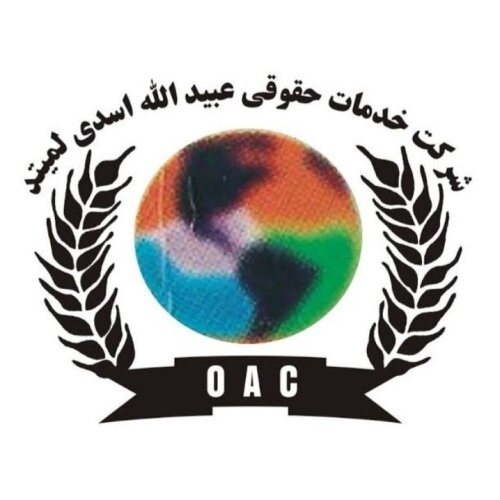Best Sanctions & Export Controls Lawyers in Afghanistan
Share your needs with us, get contacted by law firms.
Free. Takes 2 min.
Or refine your search by selecting a city:
List of the best lawyers in Afghanistan
About Sanctions & Export Controls Law in Afghanistan
Sanctions and export controls in Afghanistan refer to the set of laws and regulations that govern the movement of goods, services, technologies, and finances into and out of the country, especially those that may have military, dual-use, or economic impacts. These laws are designed to comply with both Afghan national interests and international obligations, including United Nations Security Council resolutions and other international agreements. Given Afghanistan's complex political and security environment, sanctions are frequently imposed by foreign governments and international bodies, which affect trade, investment, and humanitarian activities in the country.
Why You May Need a Lawyer
Navigating sanctions and export controls in Afghanistan is highly challenging because of frequent changes in local and international regulations, complex compliance requirements, and serious legal risks for violations. You may need legal assistance if you are:
- Engaged in the import or export of goods or services, especially items with potential military or dual-use applications
- Representing a foreign company seeking to do business in Afghanistan
- A humanitarian organization operating within the boundaries of imposed international sanctions
- Involved in financial transactions or banking services that cross Afghan borders
- Dealing with asset freezes, trade restrictions, or blocked transactions due to sanctions
- At risk of non-compliance with international obligations or local export regulations
A qualified lawyer can help evaluate your obligations, secure necessary licenses or authorizations, and represent your interests with government authorities.
Local Laws Overview
Sanctions and export control laws in Afghanistan are guided by several main sources:
- National Legislation - Afghanistan has national laws governing exports and imports, particularly for arms, dual-use goods, and items related to national security.
- International Obligations - Afghanistan must uphold sanctions and controls imposed by the United Nations Security Council, which can target specific individuals, organizations, sectors, or goods.
- Foreign Sanctions - Sanctions imposed by other countries, such as the United States or European Union, may impact businesses or individuals operating in Afghanistan, especially those interacting with the global banking system.
- Customs and Border Controls - The Afghan Customs Department regulates the import and export of goods and may impose additional documentation requirements or restrictions.
Infection points include restrictions on the export of military hardware, specific humanitarian exemptions, requirements for end-user certificates, reporting duties, and obligations to screen trading partners.
Frequently Asked Questions
What are sanctions and who imposes them in Afghanistan?
Sanctions are legal measures imposed to restrict trade, financial transactions, or the movement of goods, often in response to security threats or political developments. They can be imposed by the Afghan government, the United Nations, or foreign governments.
How do export controls differ from sanctions?
Export controls are ongoing regulations designed to restrict or monitor the export of specific goods, especially those that could be used for military purposes. Sanctions are broader measures that might target specific countries, organizations, or individuals and can include export bans as one component.
What items are commonly subject to export controls in Afghanistan?
Commonly controlled items include arms and military equipment, dual-use goods (items with both civilian and military applications), and certain chemicals or technologies that could be used for weapons development.
Are humanitarian organizations affected by sanctions in Afghanistan?
Yes, while humanitarian organizations may benefit from exemptions under certain sanctions regimes, they must still comply with reporting and licensing requirements and need to ensure they are not inadvertently supporting sanctioned individuals or entities.
Can businesses obtain licenses or exemptions from export controls or sanctions?
In some cases, businesses can apply for specific licenses or exemptions from Afghan authorities or international bodies, typically for humanitarian, medical, or non-military purposes.
What are the penalties for violating sanctions or export controls in Afghanistan?
Violations can result in severe penalties, including fines, criminal prosecution, revocation of business licenses, asset seizure, and reputational damage.
How do I check if an entity is subject to sanctions?
Sanctions lists are maintained by the Afghan government, the United Nations, and some foreign governments. Legal professionals can help screen potential business partners or clients against these lists before transactions are made.
Are cryptocurrencies and digital payments subject to sanctions controls?
Yes, financial transactions, including those using cryptocurrencies, must comply with all sanctions and export controls to prevent funding of sanctioned individuals or activities.
What should I do if my assets are frozen as a result of sanctions?
You should seek legal advice immediately. A lawyer may assist in applying for exemptions or challenging asset freezes in court or with relevant authorities.
How often do sanctions and export controls change in Afghanistan?
These laws and regulations change frequently, especially in response to developments in security, politics, or international relations. Regular legal consultation is recommended to stay compliant.
Additional Resources
If you are seeking further information or need to contact authorities about sanctions and export controls in Afghanistan, consider the following:
- Ministry of Commerce and Industry - for export licensing and regulatory guidance
- Ministry of Foreign Affairs - for international obligations and diplomatic channels
- Afghan Customs Department - for border control and customs regulations
- United Nations Assistance Mission in Afghanistan (UNAMA) - for information on UN sanctions
- Local chambers of commerce and trade associations - for business-specific support
- Legal aid organizations and international NGOs for humanitarian or compliance questions
Next Steps
If you need legal assistance with sanctions and export controls in Afghanistan, follow these steps:
- Gather all relevant documentation about the trade, transaction, or alleged violation, including licenses, contracts, and correspondence
- Contact a lawyer with experience in international trade law, sanctions, and Afghan regulations
- Discuss your situation openly to ensure the lawyer understands all potential risks and compliance obligations
- Work with your lawyer to develop a compliance strategy, respond to any inquiries from government authorities, or seek needed licenses and exemptions
- Stay updated on legal developments and adjust your processes as needed to maintain compliance
Legal advice is essential for anyone engaging in cross-border transactions or facing questions about sanctions in Afghanistan. Acting quickly and prudently can protect your business or organization from serious consequences.
Lawzana helps you find the best lawyers and law firms in Afghanistan through a curated and pre-screened list of qualified legal professionals. Our platform offers rankings and detailed profiles of attorneys and law firms, allowing you to compare based on practice areas, including Sanctions & Export Controls, experience, and client feedback.
Each profile includes a description of the firm's areas of practice, client reviews, team members and partners, year of establishment, spoken languages, office locations, contact information, social media presence, and any published articles or resources. Most firms on our platform speak English and are experienced in both local and international legal matters.
Get a quote from top-rated law firms in Afghanistan — quickly, securely, and without unnecessary hassle.
Disclaimer:
The information provided on this page is for general informational purposes only and does not constitute legal advice. While we strive to ensure the accuracy and relevance of the content, legal information may change over time, and interpretations of the law can vary. You should always consult with a qualified legal professional for advice specific to your situation.
We disclaim all liability for actions taken or not taken based on the content of this page. If you believe any information is incorrect or outdated, please contact us, and we will review and update it where appropriate.
Browse sanctions & export controls law firms by city in Afghanistan
Refine your search by selecting a city.












